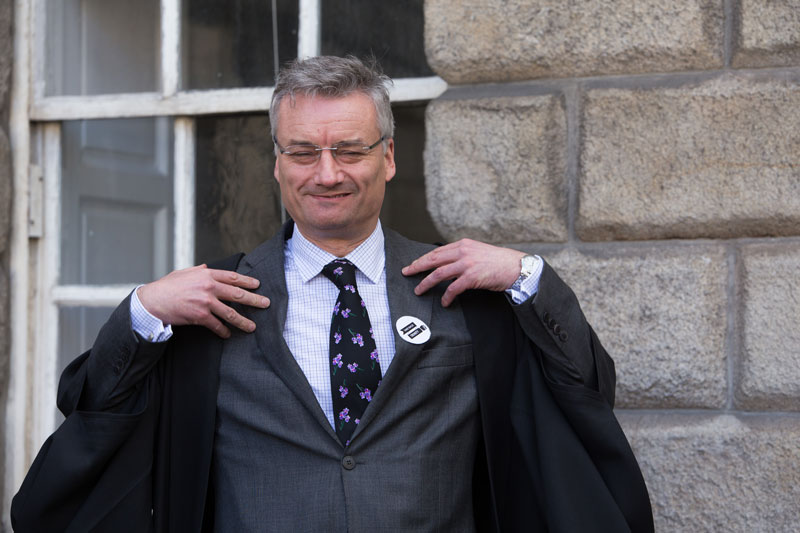This morning’s announcement that the College Board has agreed to scrap the supplemental exam fees is a truly historic moment in the history of student activism. In the face of sustained and vocal student anger, Trinity has agreed to halt, at least for now, the creeping introduction of stealth charges that have caused severe tension on campus in recent years.
The announcement also marked the culmination of efforts by the Take Back Trinity campaign, which will be remembered for its uniquely effective tactics, in what at first seemed to be a David and Goliath-esque battle.
The success of the Take Back Trinity campaign cannot be overstated. It marks more than a halt of the controversial charges. It signifies a crucial turning point in the student–College relationship. In recent years, Trinity College Dublin Students’ Union (TCDSU) has attempted to play the honourable role of constructive opposition, quietly and privately voicing concerns to the College Board, even as Prendergast forced through successive fee hikes and commercialisation projects.
The true value of the campaign is unquantifiable. This movement has successfully shown that student activism has the potential to be as effective as ever and has firmly halted any deferential attitude towards Trinity’s authorities.
For students in Trinity, and indeed across the country, it has shown once again that the immense pressure that student movements can exert on college
For students in Trinity, and indeed across the country, it has shown once again that the immense pressure that student movements can exert on college management when successfully mobilised and vocally led.
From Trinity’s perspective, the whole affair has been a disaster from beginning to end. Their erroneous handling of protests over the past few weeks, from the heavy-handed tactics employed against the Dining Hall occupation, to a bizarre and poorly run social media campaign, has caused enormous reputational damage to College.
Conciliatory gestures from Prendergast, such as agreeing to meet with TCDSU and the Graduate Students’ Union (GSU) in House Six, show that he is acutely aware of the PR nightmare Trinity has found itself in. Nonetheless, these are self-inflicted wounds that will require careful nursing in the long run if Trinity hopes to remedy them.
In the broader context of higher education funding, the success of the Take Back Trinity campaign is cause for great optimism. Having attracted widespread solidarity from students’ unions across the country, and crucially, drawn support from several prominent TDs, the campaign proves the ability of student campaigns to ignite national debate. If the momentum of the Take Back Trinity movement can be harnessed on a national scale, and the political capital is leveraged effectively, we may have just witnessed the first shots of a serious debate on education funding.
Going forward, Prendergast has promised to work with students to find a “solution to the issues confronting Irish higher education, taking account of both fairness to all students and the College’s financial position”. While incoming TCDSU and GSU presidents must be prepared to engage with Trinity on these terms, the Take Back Trinity campaign will remain acutely tuned into the negotiations, as it fights to maintain the ground conceded by College.







